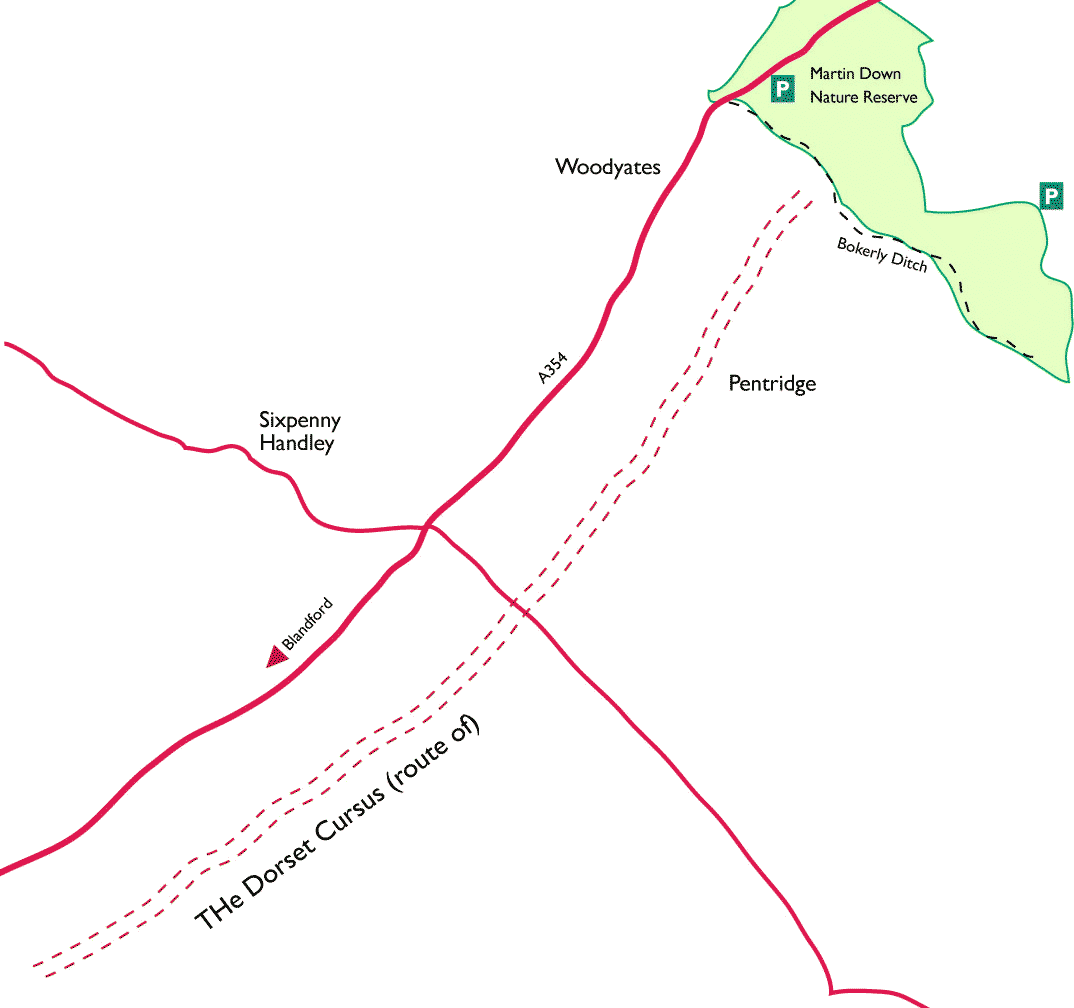FOR YOUR DAILY DOSE OF DORSET ENTER YOUR EMAIL IN THE BOX ON THE RIGHT!
3,300 years ago, the Neolithic inhabitants of Wiltshire began building Stonehenge for the English tourist board. Not to be outdone the men of North Dorset set about building their own tourist attraction, one of titanic proportions known as The Dorset Cursus.
It took the form of parallel chalk banks five feet high, six feet wide and spaced 300 feet apart flanked by deep ditches that snaked across the rolling downland of Cranborne Chase for a distance of six and a quarter miles. It has been estimated that it took around half a million man hours to construct.
...So why aren't coach loads of sheep queuing up to get an eyeful? The reason is that it is nowhere to be seen. Blame it on dodgy building materials...unfortunately its earth and chalk construction proved less durable than stone, so that while Stonehenge still wows the public most of the Cursus has long since disappeared beneath the plough. Much of what is known about it is as a result of aerial photography and geophysical surveys.
The results of these investigations show that its course originally meandered across the gently rolling countryside between Bottlebush Down and Martin Down.

A walk in Cursus country
 |
| Route of the Cursus seen from Martin Down |
The results of these investigations show that its course originally meandered across the gently rolling countryside between Bottlebush Down and Martin Down.
From the lofty viewpoint of Martin Down Nature Reserve (see walk below) you look down on the course of the Cursus. From here it takes just a little imagination to conjure those gleaming banks of white chalk stretching to the far horizon and to realise what an amazing monument it must once have been.
As to why the Cursus was constructed... no one really has any idea though theories abound, of course. Some say that it was a processional way or even a Neolithic Aintree…hence the name 'cursus'. What is definite, though, was that the second bank seems to have been built some time after the first and meandered rather drunkenly across the countryside seemingly using the first bank as a guide. It also incorporates two long barrows built into each end.
As to why the Cursus was constructed... no one really has any idea though theories abound, of course. Some say that it was a processional way or even a Neolithic Aintree…hence the name 'cursus'. What is definite, though, was that the second bank seems to have been built some time after the first and meandered rather drunkenly across the countryside seemingly using the first bank as a guide. It also incorporates two long barrows built into each end.

Martin Down and along Brokerly Ditch (7 miles approx.)
This exhilarating walk takes you across Martin Down Nature Reserve and along Brokerley Ditch, a high bank and ditch dating from the bronze age and probably built to mark territorial boundaries. The Earthwork was enlarged after the Romans left, possibly as a defensive barrier against the invading Saxons and the structure still remains impressive to this day.
The far-reaching views from the top of the down mark the beginning of the Cursus
The far-reaching views from the top of the down mark the beginning of the Cursus




No comments:
Post a Comment